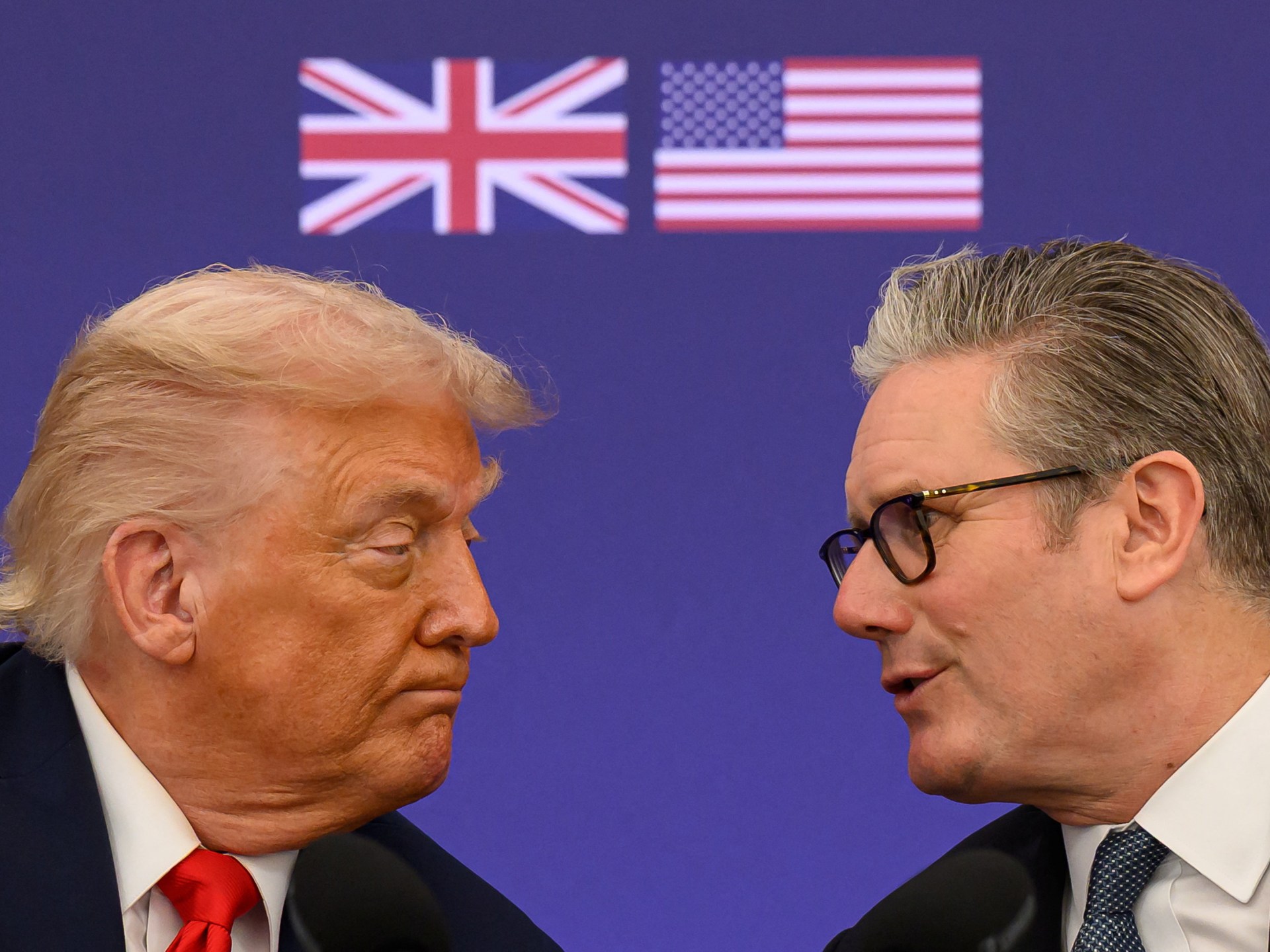The decision, announced alongside Canada and Australia, comes as Israel continues its deadly destruction in Gaza.
British Prime Minister Keir Starmer has announced the United Kingdom’s decision to formally recognise a Palestinian state more than 100 years after the Balfour Declaration backed “the establishment in Palestine of a national home for the Jewish people”, and 77 years after the creation of Israel in the British Mandate of Palestine.
“In the face of the growing horror in the Middle East, we are acting to keep alive the possibility of peace and of a two-state solution,” Starmer said in a video statement Sunday.
Recommended Stories
list of 4 itemsend of list
The UK government said in July that it would shift its longstanding approach of holding off recognition until a supposed moment of maximum impact – unless Israel stops its genocidal war in Gaza, commits to a long-term sustainable peace process that delivers a two-state solution, and allows more aid into the enclave.
But the catastrophic situation in Gaza has only grown significantly more dire over the past few weeks, as the Israeli military continues to systematically destroy Gaza City to seize it, while continuing to starve and displace the famine-stricken population of the enclave.
Daily raids by Israeli soldiers and attacks by settlers are also ongoing across the occupied West Bank, with Israel advancing plans to annex the Palestinian territory and “bury” the idea of a contiguous Palestinian state with occupied East Jerusalem as its capital.
The historic move comes as Canada and Australia also officially recognised Palestinian statehood two days before the start of the 80th session of the United Nations General Assembly (UNGA), where Palestinian sovereignty after decades of occupation and apartheid by Israel will be in focus.
Foreign Secretary Yvette Cooper said “today’s historic decision, taken alongside some of our closest allies, to recognise a Palestinian State, reflects our unwavering commitment to a two-state solution and affirms the inalienable right of the Palestinian people to self-determination.”
Britain’s deputy prime minister said on Sunday that recognising a Palestinian state would not bring one into existence “overnight”, underlining his government’s position that recognition must be part of a broader peace process, one that has been in a moribund state for decades.
“Any step to recognise it is because we wish to keep alive the prospects of a two-state solution,” David Lammy told Sky News.
The Israeli government has blasted the UK as well as more than 75 percent of UN member states that formally recognise Palestinian sovereignty, claiming their stance “rewards terrorism”.
US President Donald Trump expressed his disagreement with recognition during a state visit to the UK last week and a meeting with Starmer.
The PA’s Foreign Minister Varsen Aghabekian Shahin said on Sunday that the recognition of a Palestinian state would send an important message.
“Above all, it is a message of hope to the Palestinian people, a message of hope for a free, independent, sovereign state,” she told a news conference in Ramallah in the occupied West Bank, adding that the move would also mean that “Israel has no sovereignty on the territories of our state”.
Aghabekian described Israel’s actions as “systematic assault on the very fabric of humanity, designed to erase the Palestinian people’s existence, culture and future”.
On Monday, France and Saudi Arabia will jointly host a delayed one-day summit in New York at the UN on advancing a two-state solution for Israel and Palestine.
At least in the short term, the move to recognise a Palestinian state will be largely symbolic as all Palestinian territory is currently under deadly military occupation by Israel, which continues to emphasise the right to “defend” itself.
Mohamad Elmasry, a professor at the Doha Institute for Graduate Studies, said Western countries are motivated by a desire to be seen to be doing something but will not stop the genocide in Gaza.
“I think they’re under increasing pressure from the international community and also from their local populations to do something,” he told Al Jazeera. “This is, I think, their way of doing something or saying that they did something without actually taking substantive action.”
